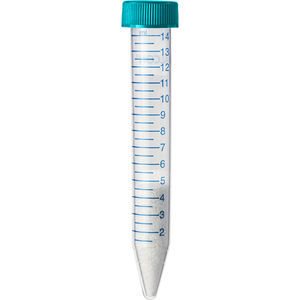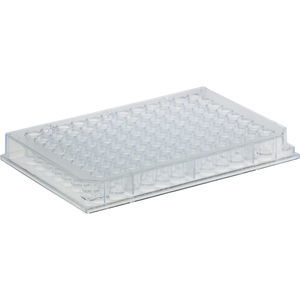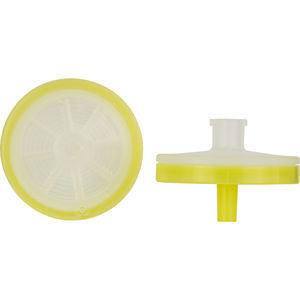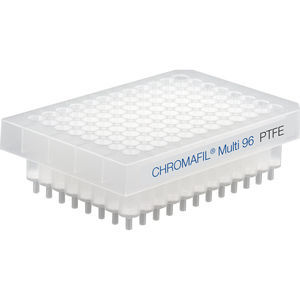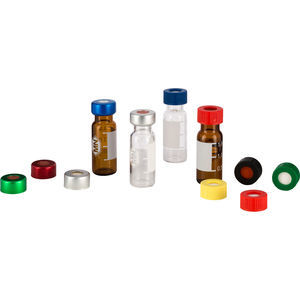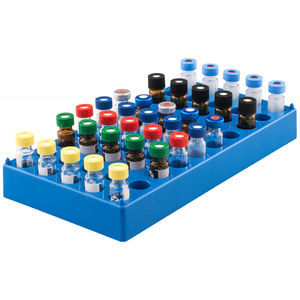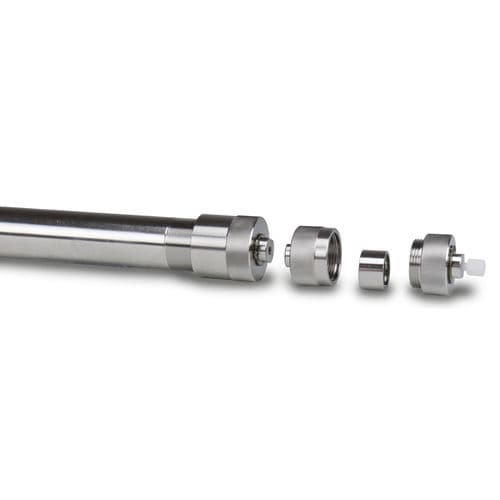
- Laboratory
- Physico-chemical analysis
- Chromatography column
- MACHEREY-NAGEL
HPLC chromatography column
Add to favorites
Compare this product
Characteristics
- Type
- HPLC
Description
This HPLC column is packed with polar aminopropyl modification, based on high purity NUCLEODUR silica gel. This HPLC phase is able to generate a clearly recognizable different retention behavior compared to purely alkyl-functionalized surface modifications. Besides cyano modifications, amino modifications belong to the most frequently used polar silica phases. Amino phases can be run in the RP mode using aqueous-organic eluent mixtures as well as in the NP mode, e.g., with hexane as mobile phase. Also anion exchange chromatography of anions and organic acids using common buffers (e.g., acetate or phosphate) in conjunction with organic modifiers (e.g., acetonitrile) is possible. Separation mechanism based on polar interactions, hydrophobic interactions and weak ion exchange interactions.
Hazardous material - No
Method - HPLC, analytical
Brand - NUCLEODUR
Base material - NUCLEODUR - high purity silica
Phase - NUCLEODUR 100-5 NH2-RP
USP listing - L8
Surface chemistry - Aminopropyl (NH2) modification
Mode - Multi-mode (RP and NP), Reversed phase (RP)
Type - EC HPLC column (analytical)
Hardware - Stainless steel
Column length - 250 mm
Column inner diameter - 4.6 mm
Particle type - Fully porous particles (FPP)
Particle shape - Spherical
Particle size - 5 µm
Eluent in HPLC column - Acetonitrile – water
Recommended application(s) - HPLC, Hydrocarbons under NP conditions, Polar compounds under RP conditions (sugars, DNA bases)
Endcapped - No
Carbon content - 2.5 %
pH stability - 2.0–8.0
Pore size - 110 Å
Specific surface according to BET - 340 m²/g
Pore volume - 0.9 mL/g
Temperature stability (max) - 60 °C
Tmax (phosphate buffer) - 40 °C
Pressure stability (max) - 600 bar
Catalogs
No catalogs are available for this product.
See all of MACHEREY-NAGEL‘s catalogs*Prices are pre-tax. They exclude delivery charges and customs duties and do not include additional charges for installation or activation options. Prices are indicative only and may vary by country, with changes to the cost of raw materials and exchange rates.


